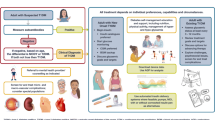Abstract
Objective
The objective of this study was to determine whether the DiaRem, a score that predicts type 2 diabetes (T2D) remission following roux-en-y gastric bariatric surgery (RYGB), also predicts remission following laparoscopic adjustable gastric banding (LAGB) and laparoscopic sleeve gastrectomy (LSG) in white and Hispanic patients.
Background
While bariatric surgery is highly effective in reversing insulin resistance, there are patients for whom surgery will not lead to remission. To date, there is no score for predicting remission following LAGB or LSG surgery. Additionally, there is little known about how to predict whether Hispanic patients will experience remission.
Methods
We conducted a retrospective cohort study of white and Hispanic patients with T2D who received bariatric surgery. There were 361 white and 130 Hispanic patients among whom 328 had RYGB surgery, 107 had LSG surgery, and 56 had LAGB surgery. We used age, diabetes treatment, and hemoglobin A1c to calculate DiaRem scores. Mann-Whitney U test was used to determine the association between DiaRem scores and remission. Area under the receiver operant curve (AUC) was used to assess the ability of the DiaRem to discriminate between patients who did and did not remit.
Results
The DiaRem was associated with partial remission in all surgery types for white and Hispanic patients (Mann-Whitney, p < 0.001). The DiaRem had moderate to high discriminant ability (AUC > 0.70) for all surgical and racial/ethnic groups.
Conclusions
The DiaRem distinguishes between patients likely and unlikely to experience remission, informing expectations of patients making T2D treatment decisions.



Similar content being viewed by others
References
Mingrone G, Panunzi S, De Gaetano A, et al. Bariatric surgery versus conventional medical therapy for type 2 diabetes. N Engl J Med. 2012;366(17):1577–85. doi:10.1056/NEJMoa1200111.
Parikh M, Chung M, Sheth S, et al. Randomized pilot trial of bariatric surgery versus intensive medical weight management on diabetes remission in type 2 diabetic patients who do NOT meet NIH criteria for surgery and the role of soluble RAGE as a novel biomarker of success. Ann Surg. 2014;260(4):617–24. doi:10.1097/SLA.0000000000000919.
Schauer PR, Kashyap SR, Wolski K, et al. Bariatric surgery versus intensive medical therapy in obese patients with diabetes. N Engl J Med. 2012;366(17):1567–76. doi:10.1056/NEJMoa1200225.
Abraham A, Ikramuddin S, Jahansouz C, et al. Trends in bariatric surgery: procedure selection, revisional surgeries, and readmissions. Obes Surg. 2016;26(7):1371–7.
Still CD, Wood GC, Benotti P, et al. Preoperative prediction of type 2 diabetes after Roux-en-Y gastric bypass surgery: a retrospective cohort study. Lancet Diabetes Endocrinol. 2014;2(1):38–45.
Panunzi S, Carlsson L, De Gaetano A, et al. Determinantas of diabetes remission and glycemic control after bariatric surgery. Diabetes Care. 2016;39(1):166–74.
Hoatoum IJ, Blackstone R, Hunter TD, et al. Clinical factors associated with remission of obesity-related comorbidities after bariatric surgery. JAMA Surgery. 2016;151(2):130–7.
Worni M, Guller U, Maciejewksi JL, et al. Racial differences among patients undergoing laparascopic gastric bypass surgery: a population-based trend analysis from 2002 to 2008. Obes Surg. 2013;23:226–33.
Coleman KJ, Brookey J. Gender and racial/ethnic background predict weight loss after Roux-en-Y gastric bypass independent of health and lifestyle behaviors. Obes Surg. 2014;24:1729–36.
Coleman KJ, Huang Y, Koebnick C, et al. Metabolic syndrome is less likely to resolve in Hispanics and non-Hispanic blacks after surgery. Ann Surg. 2014;259(2):279–85.
Admiraal WM, Celik F, Gerdes VE, et al. Ethnic differences in weight and diabetes remission after bariatric surgery: a meta-analysis. Diabetes Care. 2012;35:1951–8.
Aminian A, Brethauer SA, Kashyap SR, et al. DiaRem score: external validation. Lancet Diabetes Endocrinol. 2014;2(1):12–3.
Sampaio-Neto J, Nassif LS, Branco-Filho AJ, Bolfarini LA, Loro LS, Souza MP, Bianco T. External validation of the DiaRem score as remission predictor of diabetes mellitus type 2 in obese patients undergoing roux-en-Y gastric bypass. Arquivos Brasileiros de Cirugia Digestiva. 2015; 28(Supple 1).
Cotillard A, Pouitou C, Duchateau-Nguyen D, et al. Type 2 diabetes remission after gastric bypass: what is the best prediction tool for clinicians? Obes Surg. 2015;25:1128–32.
American Diabetes Association. Standards of medical care in diabetes—2012. Diabetes Care. 2009;32:2133–5.
Buchwald H, Estok R, Fahrbach K, et al. Weight and type 2 diabetes after bariatric surgery: systematic review and meta-analysis. Am J Med. 2009;122(3):248–56.
Dicker D, Yahalom R, Comanshter DS, Vinker S. Long-term outcomes of three types of bariatric surgery on obesity and type 2 diabetes control and remission. Obes Surg. 2015.
Centers for Disease Control and Prevention. National diabetes fact sheet: national estimates and general information on diabetes and prediabetes in the United States, 2011. Atlanta: U.S. Department of Health and Human Services, Centers for Disease Control and Prevention; 2011.
Geiss LS, Wang J, Cheng YJ, et al. Prevalence and incidence trends for diagnosed diabetes among adults aged 20 to 79, United States, 1980-2012. JAMA. 2014;312(12):1218–26.
Dixon JB, Chuang LM, Chong K, et al. Predicting the glycemic response to gastric bypass surgery in patients with type 2 diabetes. Diabetes Care. 2013;36:20–6.
Blackstone R, Bunt JC, Cortés MC, et al. Type 2 diabetes after gastric bypass: remission in five models using HbA1c, fasting blood glucose, and medication status. Surg Obes Relat Dis. 2012;8:548–55.
Dixon JB, Zimmet P, Alberti KG, et al. International Diabetes Federation Taskforce on Epidemiology and prevention. Bariatric surgery: an IDF statement for obese type 2 diabetes. Diabetes Med. 2011;28:628–42.
Maggard-Gibbons M, Maglione M, Livhits M, et al. Bariatric surgery for weight loss and glycemic control in nonmorbidly obese adults with diabetes: a systematic review. JAMA. 2013;309:2250–61.
Schneiderman N, Liabre M, Cowie CC, et al. Prevalence of diabetes among Hispanics/Latinos from diverse backgrounds: the Hispanic community health study/study of Latinos. Diabetes Care. 2014;37:2233–9.
Wood GC, Mirshahi T, Still CD, Hirsch AG. We don’t have to wait for precision medicine to cure type 2 diabetes. JAMA Surgery. 2017.
Acknowledgements
Research reported in this publication was supported by The Mid-Atlantic Nutrition Obesity Research Center (NORC) under NIH award number P30DK072488.
Author information
Authors and Affiliations
Contributions
Authors contributed the following in the development of this manuscript: AH, GW, TM, and MP were involved in the conception and study design. GW conducted data analysis. AH wrote the manuscript. All authors (GW, DH, MP, CS, TM, PB, and AH) were involved in the interpretation of the data, manuscript revisions, and approval of the final manuscript.
Corresponding author
Ethics declarations
Conflict of Interest
GW, DH, MP, CS, PB, and AH reported no conflict of interest. TM reported funding from The Mid-Atlantic Nutrition Obesity Research Center (NORC) under NIH award number P30DK072488.
Informed Consent
Informed consent was obtained for all individual participants included in the study.
Human Rights
The study was approved by the institutional review boards of the Geisinger Health System and New York University Medical Center/Bellevue Hospital and was performed in accordance with the ethical standards as laid down in the 1964 Declaration of Helsinki and its later amendments.
Rights and permissions
About this article
Cite this article
Craig Wood, G., Horwitz, D., Still, C.D. et al. Performance of the DiaRem Score for Predicting Diabetes Remission in Two Health Systems Following Bariatric Surgery Procedures in Hispanic and non-Hispanic White Patients. OBES SURG 28, 61–68 (2018). https://doi.org/10.1007/s11695-017-2799-y
Published:
Issue Date:
DOI: https://doi.org/10.1007/s11695-017-2799-y




